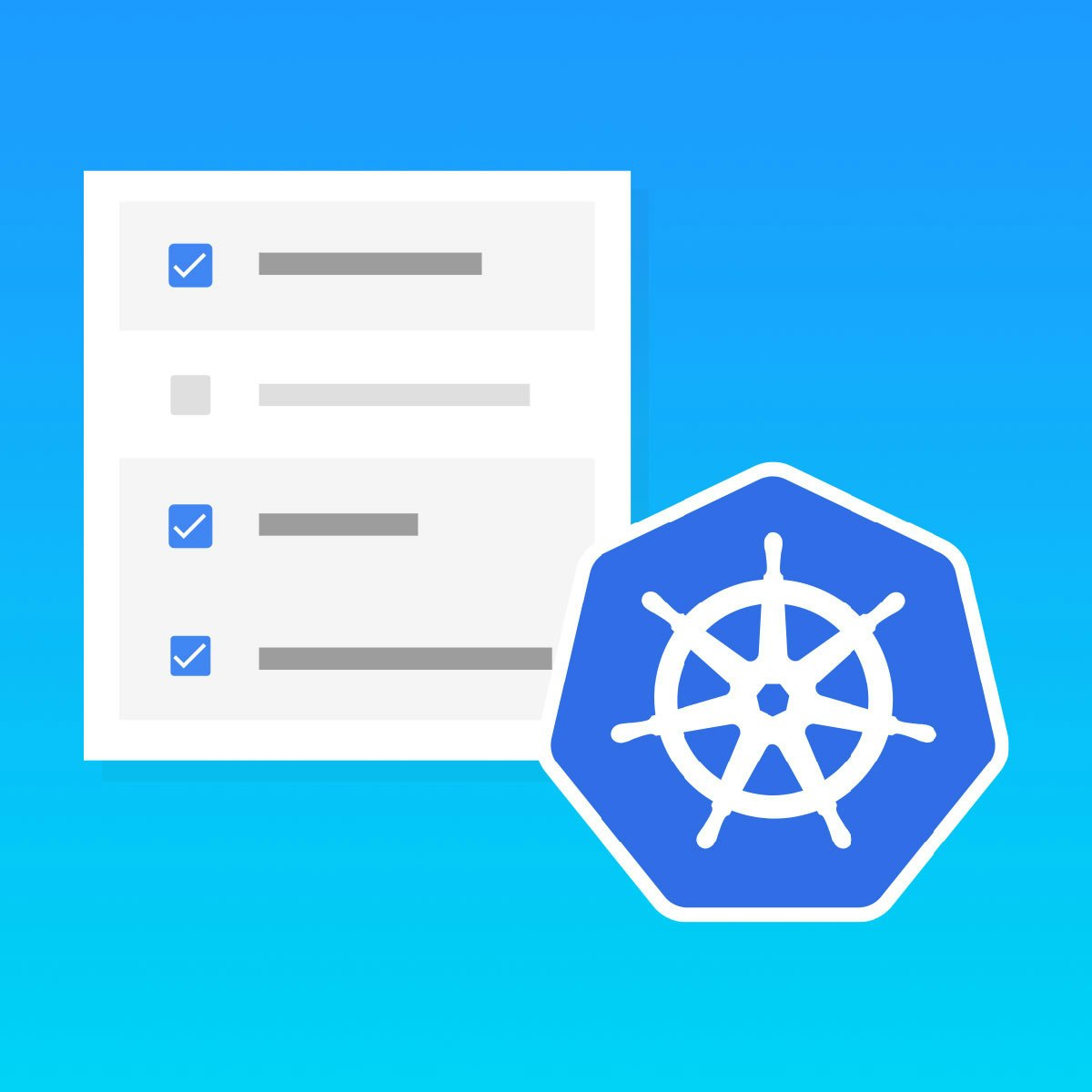
"Ti diamo il benvenuto nel corso Getting Started with Google Kubernetes Engine. Se ti interessa Kubernetes, un livello software che si trova tra le tue applicazioni e la tua infrastruttura hardware, allora sei nel posto giusto. Google Kubernetes Engine ti offre Kubernetes come servizio gestito su Google Cloud.
Read more
"Ti diamo il benvenuto nel corso Getting Started with Google Kubernetes Engine. Se ti interessa Kubernetes, un livello software che si trova tra le tue applicazioni e la tua infrastruttura hardware, allora sei nel posto giusto. Google Kubernetes Engine ti offre Kubernetes come servizio gestito su Google Cloud.
"Ti diamo il benvenuto nel corso Getting Started with Google Kubernetes Engine. Se ti interessa Kubernetes, un livello software che si trova tra le tue applicazioni e la tua infrastruttura hardware, allora sei nel posto giusto. Google Kubernetes Engine ti offre Kubernetes come servizio gestito su Google Cloud.
L'obiettivo di questo corso è illustrare le nozioni di base di Google Kubernetes Engine, o GKE, come viene comunemente chiamato, e come containerizzare le applicazioni e farle funzionare su Google Cloud. Il corso inizia con un'introduzione di base a Google Cloud, seguita da una panoramica dei container e di Kubernetes, dell'architettura di Kubernetes e delle operazioni di Kubernetes."
What's inside
Syllabus
Introduzione al corso
L'introduzione al corso spiega gli obiettivi del corso e fornisce un'anteprima di ogni sezione.
Introduzione a Google Cloud
Read more
Syllabus
Good to know
Save this course
Activities
Containerize an application using Docker
Show steps
Find a tutorial and follow along to containerize your own application using Docker.
Browse courses on
Containerization
Show steps
-
Find a tutorial
-
Follow the steps
-
Make sure your application works properly
Kubernetes commands
Show steps
Practice using Kubernetes commands to improve your proficiency.
Browse courses on
kubectl
Show steps
-
Find a list of Kubernetes commands
-
Use the commands to perform basic operations
-
Experiment with different commands
Esegui il deployment di cluster Kubernetes
Show steps
Ti aiuterà a rafforzare la tua comprensione dell'architettura di Kubernetes e delle operazioni.
Browse courses on
Google Kubernetes Engine
Show steps
-
Accedi a Google Cloud Shell
-
Crea un cluster Kubernetes utilizzando l'interfaccia della riga di comando gcloud
-
Distribuisci un'applicazione nel tuo cluster utilizzando kubectl
Three other activities
Expand to see all activities and additional details
Show all six activities
Esercitati con i comandi kubectl
Show steps
Rafforza la tua comprensione dei comandi kubectl praticando il deployment e la gestione dei cluster Google Kubernetes Engine.
Browse courses on
kubectl
Show steps
-
Visualizza i cluster GKE usando 'kubectl get nodes'
-
Distribuisci un'applicazione di esempio utilizzando 'kubectl create deployment'
-
Gestisci i pod utilizzando 'kubectl get pods' e 'kubectl exec'
-
Esegui il debug di un cluster utilizzando 'kubectl logs'
Deploy Kubernetes cluster
Show steps
Start a project of your own to deploy a Kubernetes cluster using Google Kubernetes Engine.
Browse courses on
Kubernetes Clusters
Show steps
-
Create a Google Cloud Platform project
-
Set up role for your account
-
Create a Kubernetes cluster
-
Deploy an application
Kubernetes deployment plan
Show steps
Create your own plan for deploying Kubernetes.
Browse courses on
Kubernetes Deployment
Show steps
-
Design your deployment architecture
-
Choose your deployment tools
-
Write a deployment plan
Containerize an application using Docker
Show steps
Find a tutorial and follow along to containerize your own application using Docker.
Browse courses on
Containerization
Show steps
- Find a tutorial
- Follow the steps
- Make sure your application works properly
Kubernetes commands
Show steps
Practice using Kubernetes commands to improve your proficiency.
Browse courses on
kubectl
Show steps
- Find a list of Kubernetes commands
- Use the commands to perform basic operations
- Experiment with different commands
Esegui il deployment di cluster Kubernetes
Show steps
Ti aiuterà a rafforzare la tua comprensione dell'architettura di Kubernetes e delle operazioni.
Browse courses on
Google Kubernetes Engine
Show steps
- Accedi a Google Cloud Shell
- Crea un cluster Kubernetes utilizzando l'interfaccia della riga di comando gcloud
- Distribuisci un'applicazione nel tuo cluster utilizzando kubectl
Esercitati con i comandi kubectl
Show steps
Rafforza la tua comprensione dei comandi kubectl praticando il deployment e la gestione dei cluster Google Kubernetes Engine.
Browse courses on
kubectl
Show steps
- Visualizza i cluster GKE usando 'kubectl get nodes'
- Distribuisci un'applicazione di esempio utilizzando 'kubectl create deployment'
- Gestisci i pod utilizzando 'kubectl get pods' e 'kubectl exec'
- Esegui il debug di un cluster utilizzando 'kubectl logs'
Deploy Kubernetes cluster
Show steps
Start a project of your own to deploy a Kubernetes cluster using Google Kubernetes Engine.
Browse courses on
Kubernetes Clusters
Show steps
- Create a Google Cloud Platform project
- Set up role for your account
- Create a Kubernetes cluster
- Deploy an application
Kubernetes deployment plan
Show steps
Create your own plan for deploying Kubernetes.
Browse courses on
Kubernetes Deployment
Show steps
- Design your deployment architecture
- Choose your deployment tools
- Write a deployment plan
Career center
Kubernetes Administrator
Site Reliability Engineer
Cloud Architect
DevOps Engineer
Software Engineer
Systems Administrator
Network Engineer
Security Engineer
Data Scientist
Machine Learning Engineer
Data Analyst
Business Analyst
Product Manager
Project Manager
Technical Writer
Reading list
Share
Similar courses
OpenCourser helps millions of learners each year. People visit us to learn workspace skills, ace their exams, and nurture their curiosity.
Our extensive catalog contains over 50,000 courses and twice as many books. Browse by search, by topic, or even by career interests. We'll match you to the right resources quickly.
Find this site helpful? Tell a friend about us.
We're supported by our community of learners. When you purchase or subscribe to courses and programs or purchase books, we may earn a commission from our partners.
Your purchases help us maintain our catalog and keep our servers humming without ads.
Thank you for supporting OpenCourser.



